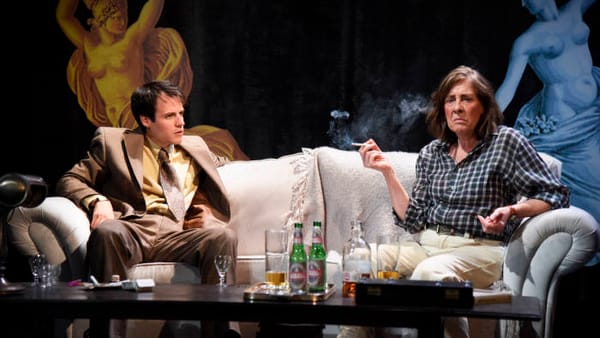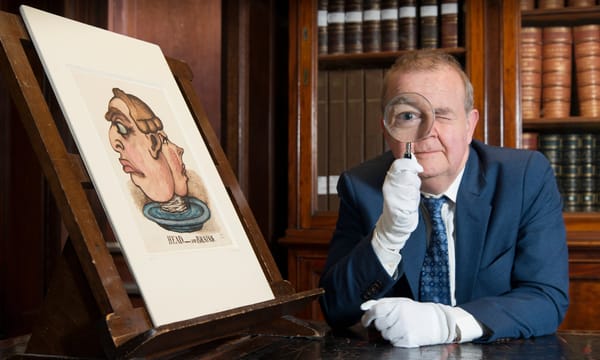La Bohème | One of opera’s great classics
Let us tell you all about this amazing show, with prose written by experienced writers, well-versed in their chosen topic.

The romanticised notion of the struggling artist – impoverished but ingenious, penniless but praiseworthy – was a big hit with the public when La Bohème first premiered in 1896. As a uni student living on a budget, the plight of Rodolfo (Jonathan Tetelman), Marcello (Nicholas Lester), Colline (David Soar) and Schaunard (Božidar Smiljanić) feels only too relatable. Well-educated but without proper jobs, they talk of Demosthenes and the pleasures of high society while freezing in a drafty garret. And who hasn’t suffered from self-doubt about their work like Roldofo, who burns his five-act manuscript for kindling?
The witty repartee and exchanges of the four friends are one of the best things about La Bohème, with the original Italian libretto the result of four years’ intensive collaboration between Puccini and his two librettists Giacosa and Illica. Amanda Holden’s English translation, thankfully, does it great justice: hilarious banter flies back and forth between Lester, Tetelman, Soar and Smiljanić, who portray the four friends with effervescent camaraderie.
These moments of levity in La Bohème only make the tragedies of the play more acute. As Colline and Schaunard battle it out with baguettes, Musetta rushes in to tell them that Mimi is dying. It’s a rollercoaster trip that enthralls from start to finish. But for it to work, the audience has to be invested in the love story between Roldofo and Mimi that lies at the heart of La Bohème. Here, great onstage chemistry between Tetelman and Romaniw makes their story genuinely moving.
The scene when Mimi and Rodolfo brush hands in the dark has got to be one of the most beautiful pieces in opera. Tetelman’s soaring, romantic tenor is a delight to the ear in the famous aria ‘What a cold little hand’, though possibly a little overwrought even for a poet in love. Romaniw’s response, ‘Yes, they call me Mimi’ is entirely in-character, appropriately measured and shy, while showing her voice’s full clarity and range – not an easy thing to do. What an ENO debut to make! In fact, the acting from the whole cast was on point. Nadine Benjamin, fresh from ENO’s recent, very well-received Porgy and Bess, is especially enjoyable to watch as the vivacious Musetta, revelling flirtatiously in her sensuality.
This year marks the fourth revival of Jonathan Miller’s classic production; watching it, it is easy to see why. Miller has really captured the essence of the La Bohème that Puccini envisioned. Set in 1920s Paris, the set is wonderfully designed; the sunlit second-floor garret morphs quite magically into a crowded Parisian street outside the Café Momus, and then into a desolate alley on a snowy winter evening. Playful details and vignettes abound without distracting from the main action, adding a touch of reality to the events on stage. With this production, all that is needed for perfection is a good set of singers. Fortunately, the cast all deliver solid performances, Romaniw especially standing out as Mimi.
With the orchestra playing the swelling notes of Puccini under the masterful direction of Alexander Joel (a La Bohème veteran, having conducted it over a hundred times), it is a fine evening of opera indeed. A treat for the ears and eyes – and an emotional upheaval for the heart! - Claire Chan
Watching La Bohème for the first time. I was devastated to watch the love story crumble before my eyes in the third act.
Why is it that opera’s greatest love stories always seem to end in tragedy? Verdi’s Alfredo and Violetta, Wagner’s Tristan and Isolde, Purcell’s Dido and Aeneas, to name but a few – all deeply and utterly in love, all ultimately destined for death or heartbreak (or both – this is opera after all).
That these tragic stories have been so deeply loved by audiences for hundreds of years is telling. Though often with far-fetched mystical plots, opera allows us to experience stories ordinarily unattainable, unimaginable, in our everyday lives. More importantly, these stories allow audiences to experience a passionate range of emotions, with revealing and relatable tales full of life, death, joy, anger, and, perhaps most relevantly, love.
Perhaps I was naive to be shocked by the sad conclusion of La Bohème. But even though I know that Rudolfo and Mimi’s love is ultimately doomed, I’m sure I will be equally, if not more, moved next time, the futility and fragility of their love making their story all the more poignant. - Helen Money-Kyrle
-4.5 stars









